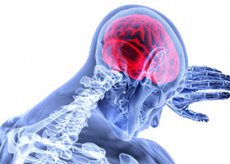Medical expert of the article
New publications
Stroke is much more dangerous than previously thought
Last reviewed: 02.07.2025

All iLive content is medically reviewed or fact checked to ensure as much factual accuracy as possible.
We have strict sourcing guidelines and only link to reputable media sites, academic research institutions and, whenever possible, medically peer reviewed studies. Note that the numbers in parentheses ([1], [2], etc.) are clickable links to these studies.
If you feel that any of our content is inaccurate, out-of-date, or otherwise questionable, please select it and press Ctrl + Enter.

A stroke is a very serious and dangerous disorder of cerebral circulation, in which a section of brain tissue dies due to oxygen and nutritional deficiency. The pathology occurs when the blood vessels supplying the brain are blocked or ruptured. According to statistics, up to 70% of patients who have suffered a stroke later become disabled, and every third of them forever loses the ability to do without medical care.
Medical specialists confirm: those patients who were able to recover from such a cerebrovascular accident still acquire a huge number of problems. And it is not only a deterioration in motor skills and speech impairment, although these problems are the most common post-stroke consequences. After a stroke, so-called "hidden" disorders are formed, which are given much less attention - and completely in vain. This was stated by scientists led by Dr. Irene L. Katzan, representing the Cleveland Clinical Center. According to the professor, such "hidden" disorders can have a significant impact on the further condition and quality of life of the patient.
The specialists conducted a study involving almost 1,200 patients who had previously suffered an ischemic stroke. The volunteers took part in a survey about their health, well-being and lifestyle. The participants had to answer the following questions: do they have unmotivated anxiety, how often do they get tired, do they suffer from insomnia, do they have problems at work. In addition, they had to answer whether they agreed that the consequences of the stroke worsened their quality of life.
Each of the participants filled out the corresponding questionnaire about a hundred days after the stroke. At the same time, every fourth patient needed help: they were unable to write down the answers on paper on their own. As expected, most of the patients complained of physical discomfort. Many participants noticed that they had lost their former social activity. About half of the volunteers indicated that it had become difficult for them to plan and organize anything.
The scientists who initiated the study emphasized the following point: doctors pay little attention to the fact that a stroke leaves a negative imprint on people's entire future lives. First of all, doctors try to restore motor coordination and eliminate the likelihood of a relapse. Other unfavorable symptoms, such as insomnia, constant fatigue, and impaired socialization, often remain "behind the scenes."
Experts are confident that the consequences of a stroke should be considered more closely, with attention paid to their prevention and treatment.
Details of the work are published on the pages of http://www.med2.ru/story.php?id=96034

